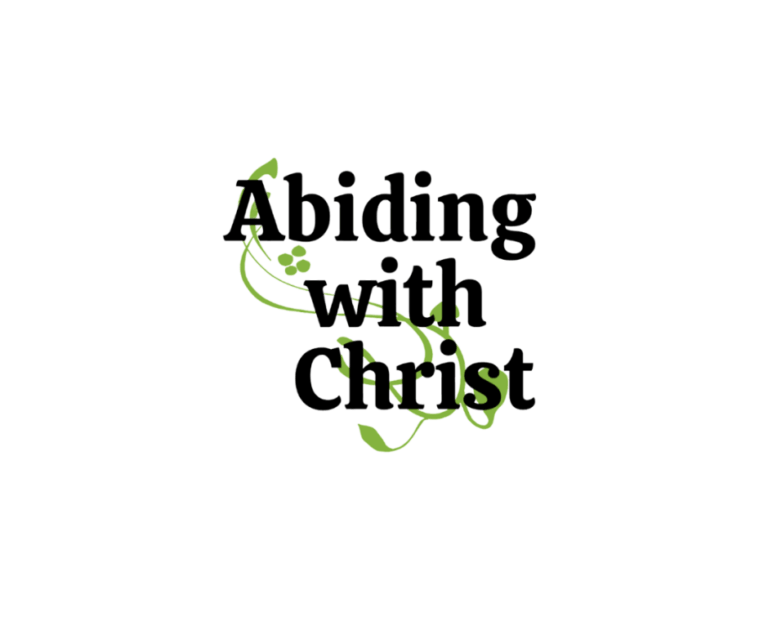We can grow in our understanding the New Covenant in Christ by seeing its parallels in the Abramic Covenant.
The Lord had said to Abram, “Leave your native country, your relatives, and your father’s family, and go to the land that I will show you. I will make you into a great nation. I will bless you and make you famous, and you will be a blessing to others. I will bless those who bless you and curse those who treat you with contempt. All the families on earth will be blessed through you.” (Genesis 12:1-3)
Despite some claims to the contrary, we can be assured that God did not change between the Old and New Testaments. God is the same yesterday, today and forever (Hebrews 13:8).
Therefore, it should not be surprising to see parallels between our experience of God between the Old and New Testaments.
One such area of parallel is between the covenant God established with Abraham and the covenant that He establishes with all who would come to faith in Jesus Christ, known to us as the New Covenant. In studying these parallels, we can come to a richer, more meaningful understanding of the New Covenant.
(Note: we’ll be using the names Abram and Abraham interchangeably in this article)
The Abramic Covenant
Let’s begin in our understanding of the New Covenant by reviewing the covenant God established with Abraham, which is today’s passage.
God makes a few specific promises to Abram. First, God tells Abram that He will establish through Abram a “great nation”. Second, God will bless Abram and “make him famous”. Third, God will curse Abram’s enemies. Fourth and finally, all the world will be blessed through Abram.
So how is this reflected in the New Covenant?
Through Christ, the church is established, of which He says the gates of Hell will not overcome it (Matthew 16:18). God pours out His blessings on His followers (Ephesians 1:3). God will eventually mete out justice against the enemies of His people and His Son (Psalm 2).
The final promise – that the world will be blessed through Abram – speaks directly to Christ’s lineage coming through God’s chosen people, through Abram. This is not so much a parallel as the extension of the Old Covenant into the New Covenant. It is a promise to Abram, but a blessing to all the world.
This is one way of understanding the New Covenant, but there are more.
Understanding the New Covenant Through the Old Covenant
Seeing an overview of the Abrahamic covenant gives us more insight to understanding the New Covenant. However, as we dig into the specific aspects of how the covenant is lived out, we see even deeper similarities and foreshadowing.
Faith
Both the Old and New Covenants are established through faith in the great I AM.
We can see the evidence that Abraham walked by faith, but just in case we miss it, the author of Hebrews paints the picture for us chapter 11, often referred to as the “faith chapter”.
Here it is shown that Abraham walked by faith in trusting God’s covenantal promise. We are not told about any protracted conversation between Abraham and God. God said, go, and Abraham went.
In Hebrews it tells us he went without even knowing where he was going. Once there, he continued to live by faith in the promise God made him because he lived as a foreigner, as did Isaac and Jacob after him (Hebrews 11:8-10).
Likewise, our understanding of the New Covenant is that it is established in faith. And just as in the Old Covenant, we see the initiative of God’s hand in it.
The Bible tells us that faith comes through hearing the good news (Romans 10:17). We are told that the grace provided for salvation through Christ’s sacrifice (and not through anything we do) comes by faith.
By understanding the New Covenant and Old Covenant are both established in faith, we show our dependence on God to keep His promises. And God shows his trustworthiness every time (2 Timothy 2:13).
Repentance
Another parallel running between the Old and New Covenants is the need for repentance. This is illustrated in the Old Covenant through the rite of circumcision (Genesis 17:9-14).
When instructing Abraham regarding circumcision, God called it his responsibility to obey the “terms of the covenant”. This appears to be the only responsibility on the part of Abraham and his descendants. God deemed it such an absolute requirement that any male who did not undergo circumcision would be cut off from the covenant family. But why would this be the sign of God’s covenant people?
In reading the scriptures, it seems clear that cutting away the flesh of the foreskin is symbolic of those in the New Covenant putting away our flesh when we repent of our sins.
In the same way, the New Covenant makes repentance an absolute requirement (Luke 13:1-4).
Even in the Old Testament, there are references to a circumcision of the heart (Deuteronomy 30:6, Jeremiah 4:4). Note that some translations – such as the NLT – render this as a change of heart, but the idea is the same. Repentance is an act of turning our hearts from sin and towards God.
Other passages in the New Testament make this further clear. Paul talks about “spiritual circumcision” we all undergo when we come to faith in Christ. This cuts away our “sinful nature”, also called the flesh (Colossians 2:11-12). No wonder we can know we have victory over the flesh – understanding the New Covenant means we understand our flesh is cast aside.
Paul also writes about the relationship of Jews and Gentiles in the New Covenant. He even writes that those of us whose hearts are circumcised are all Jews inwardly (Romans 2:29).
Obedience
We have already mentioned that Abraham obeyed God when he followed God’s directive in faith to go to another land. But there is an even more striking example of Abraham’s obedience to God. His willingness to sacrifice his son, Isaac.
If there was any struggle on Abraham’s part, we don’t really see it in the biblical account. It’s incredible to think that he wouldn’t have real emotions and struggles with this directive. But even if he did struggle, Abraham did not hesitate to obey God. We are told that he got up “the very next morning” to ready for the sacrifice (Genesis 22:1-5).
 As Abraham raised his knife to sacrifice Isaac, the angel of the Lord called to him to stop. Abraham had proved his faith through obedience, and God reiterated His covenant promise to Abraham (Genesis 22:9-18).
As Abraham raised his knife to sacrifice Isaac, the angel of the Lord called to him to stop. Abraham had proved his faith through obedience, and God reiterated His covenant promise to Abraham (Genesis 22:9-18).
Of course, the first thing we realize in understanding the New Covenant is that it is predicated on the sacrifice of an only son – God’s only Son, Jesus Christ (John 3:16). Abraham was prepared to go through with sacrificing Isaac, but where God stopped him from lowering the blade, Jesus willingly laid his life down as a ransom for the world (Matthew 20:28).
God does not require us to kill an offspring. Rather, Christ requires His followers to live a surrendered life. The good news is, when we are willing to abandon our lives in obedience to Christ, He assures us we will find it (Matthew 16:25). We can hope for no greater life than to serve Jesus Christ.
An additional parallel is that obedience is the proof that we are Christ’s followers (1 John 2:3-6). No, obedience is not earning our salvation, but it is proof that our faith is genuine. It is the mark of a true disciple.
Trusting in God’s Covenants
Understanding the New Covenant means we understand God’s covenantal nature throughout time. And one thing we can rest assured in – when God establishes a covenant, He will not break it.
One thing we can take away from learning more about God’s covenantal nature is that we must play a part in this as well. In God’s covenants, His promises are freely offered and spelled out. He gives us the choice as to whether we will take Him up on it. But if we do, we can be assured that God will live up to His end of the bargain.
Are the hallmarks of your life with Christ faith, repentance, and obedience? Do you believe Jesus is the only Son of God and yet struggle in any of these areas? Hopefully looking at the covenantal nature of our faith has encouraged and challenged you.
More Bible verses about understanding the New Covenant:
Jeremiah 31:31-34; Matthew 26:26-29; Romans 8:1-4; 1 Corinthians 11:23-26; 2 Corinthians 3:4-6; Galatians 3:23-29; Hebrews 9:11-15






